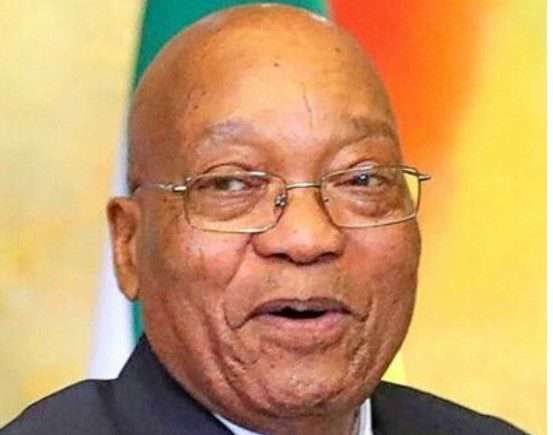In an appeal submitted to the Electoral Court, the uMkhonto weSizwe (MK) Party is challenging an Independent Electoral Commission (IEC) ruling on former president Jacob Zuma’s eligibility to contest the May 29 general elections.
In line with Section 47 of the constitution, the IEC revealed last week that Zuma was one of eight candidates whose participation in elections was objected to.
Section 47 prohibits individuals who have been convicted for more than 12 months without the option of a fine from holding public office.
Zuma’s disqualification was linked to his 2021 conviction, which stemmed from a 15-month prison sentence for contempt of court.
The appeal, which was filed on Tuesday, is based on seven grounds that challenge the IEC’s ruling on both procedural and substantive legal points.
Preliminary legal points
In a detailed statement submitted to the Electoral Court, the MK Party outlined several preliminary legal points, including the failure of the IEC to provide reasons for its decision and notify the party of objections raised against it.
The party alleges that, due to an error in e-mail communication, it was not properly informed of the objections, rendering the decision procedurally unfair.
“In the end, all of the above renders the decision procedurally unfair and/or irregular,” the party said.
“The third respondent [Bethuel Terrence Nkosi] has since indicated that he did not lodge the second objection, which might well be a case of forgery.
“Despite having distanced himself from the objection, for now he will remain cited as a party until further information is available.”
The appeal is also challenging the jurisdiction of the IEC to regulate the membership of the National Assembly, arguing that such authority lies with the National Assembly itself.
Crossing the boundary
The MK Party asserts that the IEC’s role is limited to determining qualifications for candidature, not membership eligibility for the National Assembly.
“In terms of Section 57[1] of the constitution, it is the National Assembly, not the IEC, that may determine and control its internal arrangements and make rules and orders concerning its business.
“The doctrine of non-encroachment [also known as separation of powers or deference] prohibits the IEC from interfering in issues of membership eligibility for the National Assembly. Its role is limited to what is defined in Section 30[1][a].”
A significant aspect of the appeal revolves around the interpretation of Section 47(1)(e) of the constitution, which prohibits individuals convicted of certain offences from standing as candidates.
The MK Party argues that this provision does not apply to Zuma, citing the legal complexities surrounding his contempt of court conviction and subsequent sentence.
Furthermore, the party contends that the objection raised against Zuma’s candidature was deficient and failed to address essential legal elements, such as the proviso in Section 47(1)(e) and the duration of his sentence.
Violation of political rights
“Section 47[1][e] of the constitution further contains a proviso that ‘no one may be regarded as having been sentenced until an appeal against the conviction or sentence has been determined, or until the time for an appeal has expired’.
“In the above regard, it is imperative that this honourable court consider whether the second appellant may be regarded as having been ‘sentenced’ for purposes of Section 47[1][e] if the abovementioned proviso is given effect.
“In this respect, the questions arise whether the second appellant lodged an appeal against the conviction or sentence; and if in the affirmative, whether the appeal has been determined; and if not, whether the time for an appeal has expired.”
The MK Party also asserts that the IEC’s decision violates political rights enshrined in the constitution, including the right to stand for public office.
It urges the Electoral Court to set aside the decision and issue any other just and equitable orders consistent with the constitution.
The Electoral Court is expected to review the appeal and render a decision in due course.




